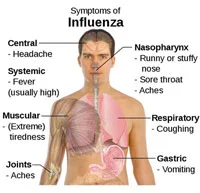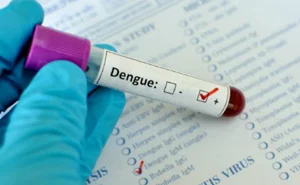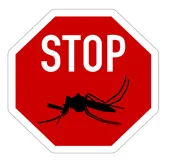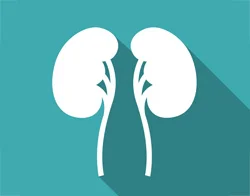Infiltrating Ductal Carcinoma (Invasive breast cancer)
IDC is the commonest of all types of breast cancer (about 80% of all breast cancers). It is called so because it begins in your milk ducts before spreading (invading) to the adjacent tissues. If not detected at an early stage, it can spread to the lymph nodes, and possibly other areas of the body. It can affect women at any age, but is more common in older women. This form of carcinoma also affects men.
IDS is often asymptomatic, the abnormality showing up only during mammogram (X-ray of the breast). However, one needs to look out for the following symptoms:
- Any swelling in the breast
- Lump or mass that was not there earlier
- Irritation or dimpling on the skin
- Pain in the breast
- Pain in the nipple / nipple turning inward
- Thickening or redness of nipple or skin on the breast
- Nipple discharge
- Appearance of a lump in the underarm
Diagnosis
A combination of physical examination and imaging (tests) are usually used to diagnose invasive ductal carcinoma
- Physical examination: You doctor will feel the lymph nodes (under armpits and above collarbones) for any unusual swelling or lump
- Mammogram: Can detect early signs of breast cancer. IDC can show up as abnormal, finger-like projections into other tissues
- Ultrasound: Your Doctor may ask for an ultrasound for further confirmation if mammography shows any abnormality
- MRI of the breast: Sometimes, in the more complex cases, the Doctor may ask for an MRI
- Biopsy: The Doctor will conduct a biopsy for confirmation of the diagnosis when cancer is suspected. In this sample cells are removed from the breast through a small incision and examined under the microscope for abnormalities
Staging
Depending on the size of tumour and/or how far it has spread, stage of the disease is determined. Tests like Bone Scan, CT scan, Ultrasound, MRI and PET scan are used to determine the spread and stage of cancer.
The most common sites of spread for IDC are the bones, liver, lung, and/or brain
Gradation
Depending on the degree of abnormality of cancer cells, gradation is done. IDC is identified as Grade 1, 2 or 3. Lower the grade, better are the chances of recovery as they grow more slowly and are less likely to spread
Treatment
Surgery
In majority of cases, surgery is usually the first line of treatment to remove the breast tumor. The type of surgery depends on the stage and grade of the cancer and other factors specific to your situation. However, a large tumour or cancer that is rapidly spreading to the lymph nodes and other body parts need to be shrinked with hormonal therapy or chemotherapy.
Surgical procedures may include:
- Lumpectomy: where the lump along with some surrounding tissues and underarm lymph nodes are removed
- Mastectomy: Can be partial or radical. In the former only affected portion of the breast is removed, sometimes along with lymph nodes. In the latter, the affected breast is removed completely.
Breast Reconstruction
It is a process by which the removed breast is reconstructed by a plastic surgeon. This procedure can be done immediately following the mastectomy, or later depending on your choice or advice of the Doctor.
Radiation therapy
It (recommended post surgery) directs high-energy rays at the breast, chest area, under the arm, and/or the collarbone area to destroy any IDC cells that may be left behind. This treatment also reduces the risk of recurrence (the cancer coming back).
This is usually done by External Beam Radiation with a machine called Linear Accelerator, targeting the site of mastectomy and surrounding lymph nodes (daily for 5 to 7 weeks).
Sometimes Partial Breast Irradiation may be used, where the area around where the cancer was is targeted. This method usually takes 5 to 10 days of treatment.
Chemotherapy
Apart from local treatments like surgery and Radiation Therapy, sometimes Chemotherapy is required to destroy cancer cells that have spread to other parts of the body. Often this treatment in also used to reduce the chances of recurrence of cancer. The process involves giving combinations of anti-cancer medicines (through injections or orally) to the patient. The medicines travel through the blood cells killing the cancer cells. Chemotherapy, however, may have side effects, as along with the cancer cells, it also destroys some healthy cells.
Chemotherapy is given in cycles and the course of treatment usually takes about 3 to 6 months. Medicines used vary from person to person.
Follow up Care
You need to work with your Doctor on this. Depending on the form, stage and complication of the disease and the treatment procedure followed, your Doctor will prepare a follow up schedule for you, which is likely to include:
- Physical examination & counseling: Every 4-6 months for the first 5 years and annually after that
- Mammogram of affected breast 6-12 months after completion of radiation therapy, followed by annual mammography of both breast
- MRI may be advised if you fall under the high-risk category because of a strong family history, or positive genetic test
- Regular examination by Gynaecologist: Some medications may increase the risk of cancer of the uterus, hence this is necessary
- Monitoring of bone health for ladies post menopause
Please remember, your Doctor is the best person to advise you as he/she is best aware of your requirements.
Medica Institute of Breast Diseases offers comprehensive diagnosis, treatment and post op care for all kinds of breast diseases, including cancer

 Painkillers or paracetamols can help treat symptoms like, body aches and headache that come with the flu. Besides a doctor’s prescribed medicines, the following precautions are recommended:
Painkillers or paracetamols can help treat symptoms like, body aches and headache that come with the flu. Besides a doctor’s prescribed medicines, the following precautions are recommended:

 The signs and symptoms of dengue fever are similar to some other diseases like typhoid fever and malaria, which can many a time lead to inaccurate diagnosis. Doctors can order blood tests to detect the virus.
The signs and symptoms of dengue fever are similar to some other diseases like typhoid fever and malaria, which can many a time lead to inaccurate diagnosis. Doctors can order blood tests to detect the virus. There are no vaccines to prevent this infection, but since its virus is carried by mosquitoes, one can take precautions against mosquito bites. Some common precautions to be taken are:
There are no vaccines to prevent this infection, but since its virus is carried by mosquitoes, one can take precautions against mosquito bites. Some common precautions to be taken are:



